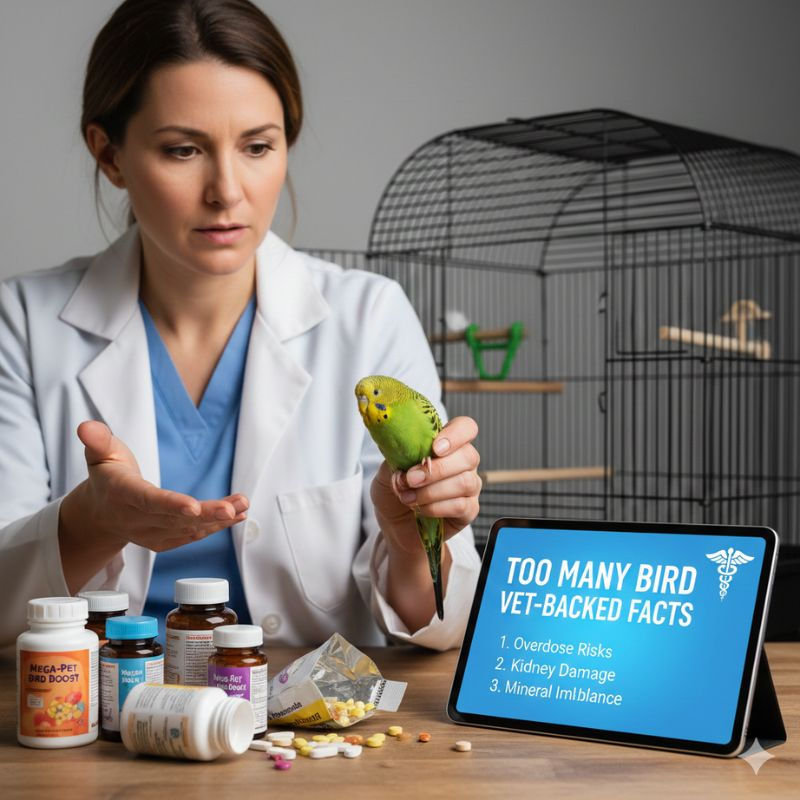The Role of Vitamin A in Reptile Health: Benefits and Risks
- petperchlove
- Mar 18, 2025
- 3 min read

Vitamin A is an essential nutrient for reptiles, playing a crucial role in maintaining healthy skin, vision, immune function, and overall well-being. However, improper supplementation can lead to deficiencies or toxicities, both of which can be harmful to your reptile’s health. Understanding the right balance of reptile vitamins is key to ensuring your pet thrives. In this article, we will explore the importance of Vitamin A, its benefits, potential risks, and how to provide proper supplementation with high-quality reptile supplements available at Kwik Pets.
The Importance of Vitamin A for Reptiles
Vitamin A is a fat-soluble vitamin that plays a vital role in a reptile’s body. It is necessary for:
Vision: Supports healthy eyesight, particularly in nocturnal and diurnal reptiles.
Skin and Scale Health: Prevents shedding issues, dry skin, and infections.
Immune System Support: Helps fight off infections and keeps reptiles healthy.
Reproductive Health: Essential for proper egg development and hatchling survival.
Respiratory Health: Prevents respiratory infections that often stem from Vitamin A deficiencies.
Benefits of Vitamin A in Reptiles
Ensuring that your reptile receives adequate reptile health supplements containing Vitamin A offers numerous benefits:
Prevents Hypovitaminosis A (Vitamin A Deficiency)
Many reptiles, especially turtles and lizards, are prone to Vitamin A deficiency when fed an improper diet. Deficiency symptoms include swollen eyes, respiratory issues, and difficulty shedding.
Promotes Healthy Shedding
Vitamin A aids in proper skin development, preventing retained shed and scale abnormalities.
Enhances Immune Function
A well-balanced diet with Vitamin A helps protect reptiles from bacterial and fungal infections.
Improves Vision and Eye Health
Without enough Vitamin A, reptiles may develop eye infections, swelling, and even blindness.
Supports Digestive Health
Helps maintain a healthy digestive tract, reducing the risk of impaction and digestive disorders.
Risks of Excessive Vitamin A in Reptiles
While Vitamin A is crucial for reptile health, over-supplementation can lead to hypervitaminosis A (Vitamin A toxicity), which is equally dangerous. Some of the risks include:
Liver Damage: Since Vitamin A is fat-soluble, excess amounts get stored in the liver, potentially leading to liver disease.
Bone Deformities: Excess Vitamin A can cause bone and joint issues, particularly in young reptiles.
Skin Lesions: Over-supplementation can result in dry, cracked skin, leading to infections.
Lethargy and Weakness: Reptiles suffering from Vitamin A toxicity may become weak, inactive, and prone to illness.
How to Provide Vitamin A to Reptiles Safely
Feed a Balanced Diet
Leafy greens, carrots, sweet potatoes, and squash are natural sources of Vitamin A. Carnivorous reptiles can obtain Vitamin A from whole prey items such as mice or organ meats.
Use High-Quality Reptile Supplements
Choose trusted reptile health supplements that contain the right balance of vitamins and minerals. Kwik Pets offers a variety of reptile supplements formulated to meet your pet's needs.
Avoid Over-Supplementation
Follow dosage instructions carefully. If unsure, consult a veterinarian specializing in reptiles.
Regular Vet Check-ups
Regular health check-ups ensure that your reptile’s Vitamin A levels are within a safe range.
Final Thoughts
Vitamin A is a crucial nutrient for reptile health, supporting vision, skin health, immune function, and overall well-being. However, both deficiency and toxicity can be harmful. By providing a balanced diet and choosing high-quality reptile vitamins from Kwik Pets, you can ensure your pet remains healthy and active. Always monitor your reptile’s health and consult a veterinarian if you notice any signs of deficiency or overdose.
If you want the best reptile cleaning supplies to keep your pet’s enclosure fresh and odor-free, we’ve got you covered!
FAQs
Q1: How do I know if my reptile has a Vitamin A deficiency?
A: Common signs include swollen eyes, poor shedding, respiratory infections, and lethargy. If you notice any of these symptoms, consult a reptile vet.
Q2: Can I give my reptile Vitamin A supplements daily?
A: No. Over-supplementation can lead to toxicity. Always follow the recommended dosage and ensure a balanced diet.
Q3: What are the best natural sources of Vitamin A for reptiles?
A: Leafy greens, carrots, squash, and whole prey (for carnivorous reptiles) are excellent sources.
Q4: What happens if my reptile gets too much Vitamin A?
A: Symptoms of toxicity include lethargy, skin cracking, swelling, and organ damage. Consult a vet immediately if you suspect Vitamin A overdose.
Q5: Where can I buy safe and high-quality reptile supplements?
A: Kwik Pets offers a range of trusted reptile health supplements designed to keep your pet healthy and thriving.



Comments